Discover the Soothing Benefits of Herbal Teas
Hey there, tea lovers and wellness enthusiasts! Are you ready to dive into the soothing world of herbal teas? These delightful, caffeine-free brews aren’t just delicious – they provide a natural way to relax, support digestion, and boost immunity. Whether you’re looking for a stress-relieving bedtime tea or an energizing morning infusion, herbal teas offer holistic health benefits that enhance overall well-being. Let’s explore how these powerful botanical infusions can elevate your wellness and bring comfort to your daily routine.
👉 Enhance your tea experience with the 🛒 Vianté Luxury Tea Set—a beautifully crafted electric kettle with a tea infuser, ceramic teapot, and cups, all elegantly placed on a wooden tray. Perfect for loose-leaf tea lovers and an excellent gift idea for any tea enthusiast. Get yours today!
Why Choose Herbal Teas? The Health Benefits Explained
Herbal teas have been cherished for centuries, with cultures worldwide harnessing their healing and relaxation properties. Unlike traditional teas made from the Camellia sinensis plant, herbal teas are made from an array of nutrient-rich botanicals, including leaves, flowers, seeds, and roots. This means they are naturally caffeine-free and rich in antioxidants, making them an ideal choice for any time of the day.
Each variety of herbal tea provides unique benefits:
- Chamomile Tea – A well-known sleep aid, it helps reduce stress, promote relaxation, and support digestion.
- Peppermint Tea – Soothes digestion, relieves bloating, and freshens breath with its cooling menthol properties.
- Ginger Tea – A natural anti-inflammatory, great for boosting immunity, easing nausea, and aiding digestion.
- Hibiscus Tea – Packed with antioxidants, supports heart health, regulates blood pressure, and enhances hydration.
By experimenting with different herbal tea blends, you can find the perfect combination to support your wellness goals, whether it’s for better sleep, improved digestion, or stress relief.
Herbal Teas for Mindfulness and Relaxation
Beyond their physical benefits, herbal teas promote mental clarity and relaxation. The simple act of brewing and sipping tea encourages mindfulness, helping you slow down, breathe deeply, and enjoy a moment of tranquility. Imagine curling up with a steaming cup of herbal tea, inhaling its soothing aroma, and letting go of the day’s worries—it’s a simple but powerful self-care ritual ().
Enhance Your Herbal Tea Experience
To maximize the flavor and health benefits of herbal tea:
- Opt for loose-leaf teas to enjoy a richer, more potent infusion. (Looking for the best organic herbal teas?
- Blend different herbs to customize your tea based on your needs.
- Choose organic, high-quality herbal teas to avoid pesticides and synthetic additives.
With a little exploration, herbal tea can become a cherished part of your daily wellness routine, offering comfort, nourishment, and relaxation in every sip. Whether you’re new to herbal infusions or a seasoned tea lover, there’s always a new flavor and benefit to discover. Start your herbal tea journey today and embrace the healing power of nature!
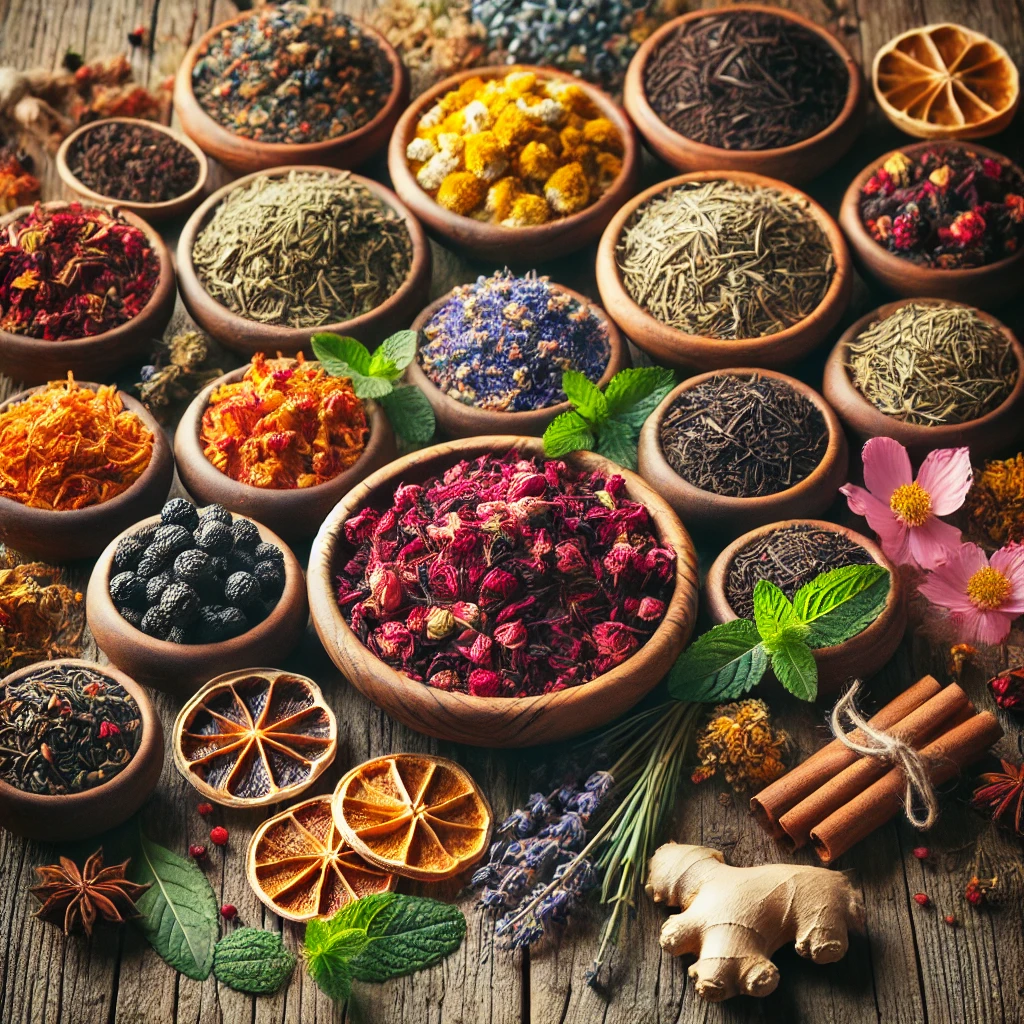
The Magic of Herbal Teas
Herbal teas are more than just flavored water—they are nature’s remedy packed with wellness benefits! Unlike traditional black or green teas, which come from the Camellia sinensis plant, herbal teas are made from a variety of flowers, herbs, fruits, and spices, each bringing its own set of powerful properties. Most herbal teas are naturally caffeine-free, making them the perfect beverage for any time of the day—whether you need an energizing morning boost or a calming nighttime ritual.
Suggested Image: A visually appealing arrangement of various dried herbs and flowers used for herbal teas, with labels indicating their benefits. (Image name: herbal-tea-ingredients.jpg)
Why Choose Herbal Tea?
One of the key reasons herbal teas are gaining popularity is their versatility and health benefits. Depending on the blend, they can be soothing, invigorating, or medicinal. Some, like chamomile and lavender, are known for their calming properties, making them ideal for relaxation and sleep. Others, such as peppermint and ginger tea, aid digestion and help alleviate stomach discomfort. Herbal teas like hibiscus and rooibos are rich in antioxidants, supporting heart health and strengthening the immune system.
A Sensory and Healthful Experience
Beyond their health benefits, herbal teas provide a rich sensory experience. Their natural aromas, vibrant colors, and unique flavors make every sip an indulgence. From the floral notes of rose and jasmine to the spicy warmth of cinnamon and cardamom, there’s an herbal tea for every palate. Some teas even create stunning visual transformations—like butterfly pea flower tea, which changes from deep blue to purple with a squeeze of lemon juice.
Customizing Your Herbal Tea Experience
Herbal teas are incredibly adaptable and customizable:
- Enjoy them hot in winter for a cozy treat or iced in summer for a refreshing boost.
- Enhance flavor and health benefits by adding honey, lemon, or fresh herbs.
- Opt for loose-leaf teas for a richer, more potent infusion.
- Blend different herbs to create personalized tea combinations tailored to your needs.
With their wealth of flavors, aromas, and health benefits, herbal teas are a natural and nourishing choice for anyone looking to support their well-being while indulging in a delicious, antioxidant-rich beverage. Whether you’re a seasoned tea lover or just starting your herbal tea journey, there’s always something new to explore in this world of holistic wellness.
A Natural Approach to Wellness
In today’s fast-paced world, it’s easy to overlook natural remedies in favor of quick fixes. However, herbal teas have been cherished for centuries as a way to support overall health and well-being. Unlike processed beverages loaded with artificial ingredients, herbal teas provide a pure and nourishing alternative, offering a gentle and effective way to enhance physical and mental wellness.
Herbal teas are packed with antioxidants, vitamins, and minerals that help detoxify the body, support digestion, and strengthen the immune system. Whether you’re looking for a calming blend to relieve stress, a digestive aid to soothe bloating, or an immune-boosting infusion, there’s an herbal tea to support every aspect of your well-being.
The Mindful Ritual of Herbal Tea
Beyond their physical benefits, drinking herbal tea is a powerful mindfulness practice. The process of brewing, inhaling the soothing aroma, and slowly sipping a warm cup encourages you to pause, breathe deeply, and reconnect with yourself. This simple yet meaningful act can reduce stress, enhance focus, and cultivate inner peace.
Tea drinking can also be a form of self-care, allowing you to carve out a moment of tranquility amidst a busy day. Whether you’re enjoying a cup of chamomile before bed, peppermint after a meal, or ginger tea to support digestion, each sip offers a soothing escape that nurtures both body and mind.
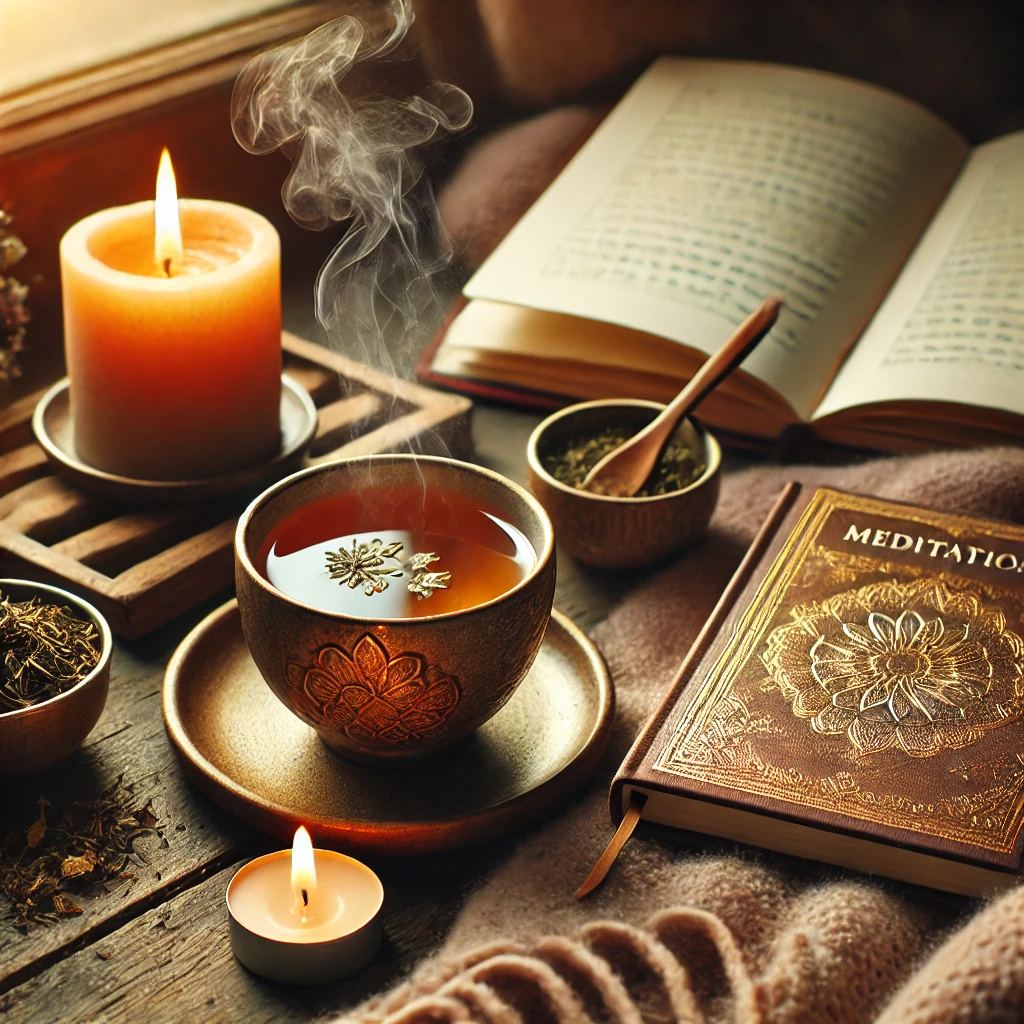
Exploring Different Herbal Teas and Their Benefits
Let’s take a tour of some of the most popular herbal teas and their incredible benefits:
1. Chamomile Tea – The Ultimate Relaxation Drink
Chamomile is widely known for its calming effects. It’s the perfect choice for winding down before bed, relieving stress, and even easing mild insomnia. This tea also has anti-inflammatory properties that can support digestion and reduce bloating. Studies suggest chamomile may help regulate blood sugar levels and promote heart health.
2. Peppermint Tea – The Digestive Soother
Peppermint tea is a refreshing, invigorating drink that helps with digestion, relieves bloating, and can even alleviate headaches. Its cooling menthol component provides a natural way to clear nasal congestion as well. Additionally, peppermint tea has been shown to relieve symptoms of irritable bowel syndrome (IBS) by relaxing the muscles of the gastrointestinal tract.
3. Ginger Tea – The Immune Booster
Ginger tea is a powerhouse for digestion and immunity. It helps ease nausea, supports gut health, and has anti-inflammatory properties that can relieve muscle pain and menstrual cramps. Rich in antioxidants, ginger tea can also help combat oxidative stress and may support cardiovascular health by improving circulation and reducing cholesterol levels.
4. Echinacea Tea – The Cold & Flu Fighter
This herbal tea is often used to support the immune system, especially during cold and flu season. Regularly drinking echinacea tea may help reduce the severity and duration of colds. It is packed with antioxidants and has been linked to reducing inflammation, improving skin health, and even lowering anxiety levels.
5. Lavender Tea – The Stress Reliever
Lavender isn’t just for essential oils! As a tea, lavender promotes relaxation, reduces anxiety, and even helps with mild depression. Its floral aroma is soothing and can help improve sleep quality. Research suggests lavender tea may also have antimicrobial properties, helping to fight infections and support digestive health.
6. Hibiscus Tea – The Heart-Healthy Hydrator
Hibiscus tea is well-known for its antioxidant-rich properties and its ability to support heart health. Studies suggest it helps lower blood pressure and cholesterol levels, reducing the risk of heart disease. Its tart, cranberry-like flavor makes it a delicious and refreshing option, and it also supports hydration and liver health while aiding digestion.
Comparison of Herbal Teas and Their Benefits
Health Benefits of Popular Herbal Teas
| Herbal Tea | Key Benefits | Best Time to Drink |
|---|---|---|
| Chamomile | Stress relief, sleep aid, anti-inflammatory | Evening, before bed |
| Peppermint | Digestive aid, headache relief, congestion relief | After meals or mid-day |
| Ginger | Immune booster, digestion support, anti-inflammatory | Morning or post-meal |
| Echinacea | Cold prevention, immune support, anti-inflammatory | Anytime during flu season |
| Lavender | Anxiety reduction, sleep aid, antimicrobial properties | Evening or before bedtime |
| Hibiscus | Antioxidant-rich, heart health, lowers blood pressure | Morning or afternoon |
Effectiveness Of Herbal Teas For Various Health Benefits
Herbal teas have long been valued for their diverse health benefits, offering natural solutions to a wide range of ailments. The effectiveness of herbal teas stems from their bioactive compounds, which include antioxidants, polyphenols, and essential oils that work together to promote well-being. Chamomile tea, for instance, is widely known for its calming properties, helping to reduce stress and improve sleep quality. Ginger tea is praised for its anti-inflammatory effects, aiding digestion, relieving nausea, and boosting immunity. Meanwhile, peppermint tea is a go-to remedy for digestive issues, soothing bloating, and relieving irritable bowel syndrome (IBS) symptoms. By regularly consuming herbal teas, individuals can experience cumulative health benefits, supporting their body’s natural functions without the side effects commonly associated with synthetic medications.
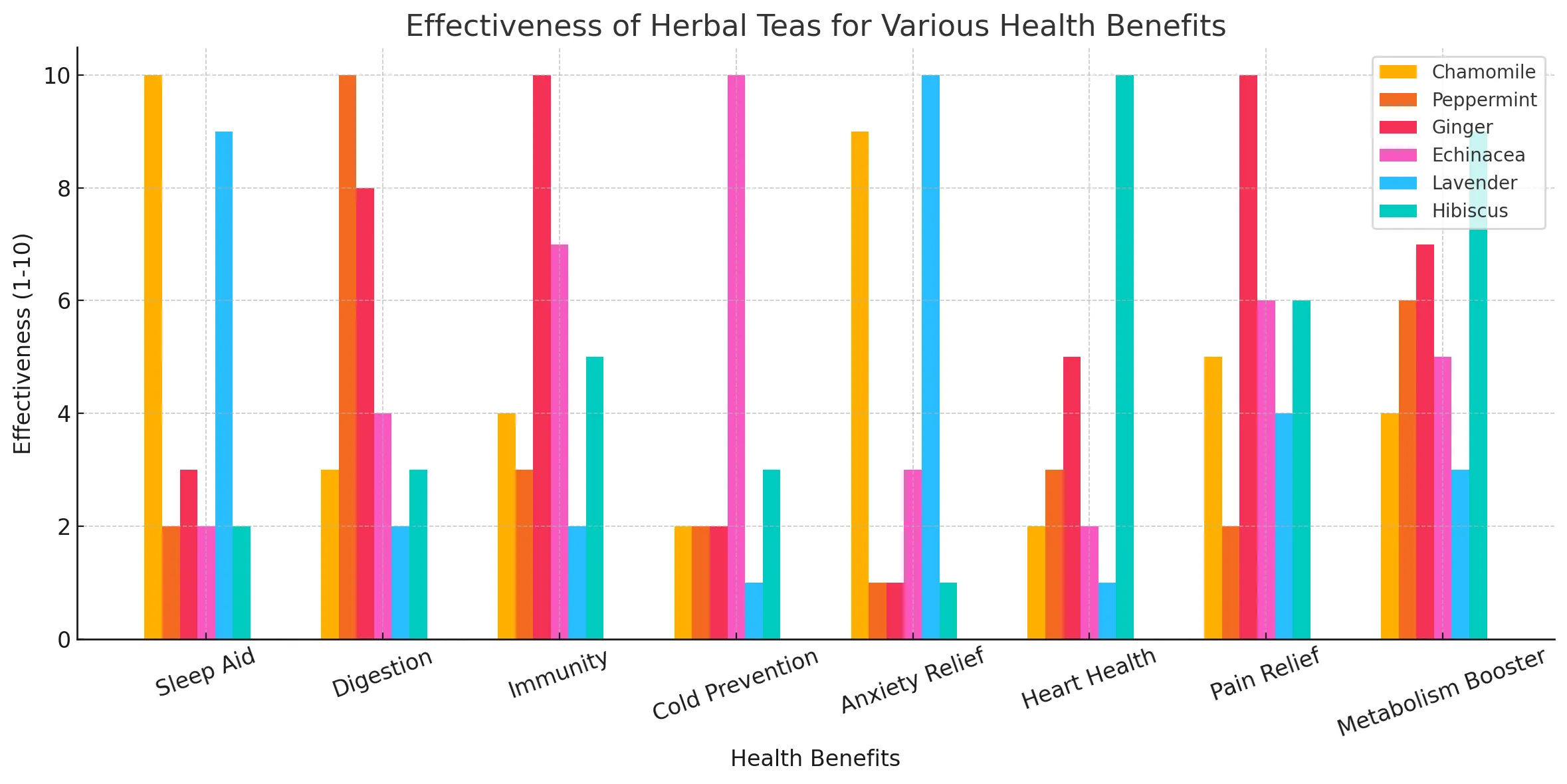
Scientific research continues to highlight the effectiveness of herbal teas in addressing specific health concerns. Hibiscus tea has been shown to lower blood pressure and cholesterol levels, making it a heart-friendly choice. Echinacea tea is often used as an immune booster, particularly during flu season, while rooibos tea is rich in antioxidants that may help protect against oxidative stress and premature aging. Additionally, herbal teas play a crucial role in mental well-being. Lavender tea, for example, has been found to reduce anxiety and promote relaxation. The act of brewing and sipping a warm cup of tea itself can enhance mindfulness, making it an effective tool for stress management. While herbal teas are not a substitute for medical treatment, their holistic benefits make them a valuable addition to a healthy lifestyle, offering gentle and effective support for overall wellness.
Incorporating Herbal Tea into Your Daily Routine
Making herbal tea a part of your lifestyle is easier than you think! Whether you’re looking for energy-boosting teas, stress-relief herbal infusions, or natural sleep aids, there’s a perfect blend for every part of your day. Drinking herbal tea consistently can help support digestive health, immune function, and mental clarity while keeping you hydrated with flavorful, caffeine-free options. Here are some simple and effective ways to incorporate these natural wellness drinks into your daily routine:
- Morning Boost: Start your day with a cup of invigorating peppermint tea for digestion or ginger tea to awaken your senses and stimulate circulation.
- Afternoon Calm: Soothe midday stress with lavender or chamomile tea, known for their anti-anxiety and relaxation properties.
- Post-Meal Digestion: Sip on ginger or peppermint tea after meals to support gut health, ease bloating, and promote better digestion.
- Bedtime Relaxation: Wind down with chamomile or lemon balm tea—both excellent for promoting restful sleep and reducing nighttime anxiety.
By making herbal teas a part of your wellness routine, you can enjoy their numerous health benefits while savoring a moment of relaxation in your busy day.
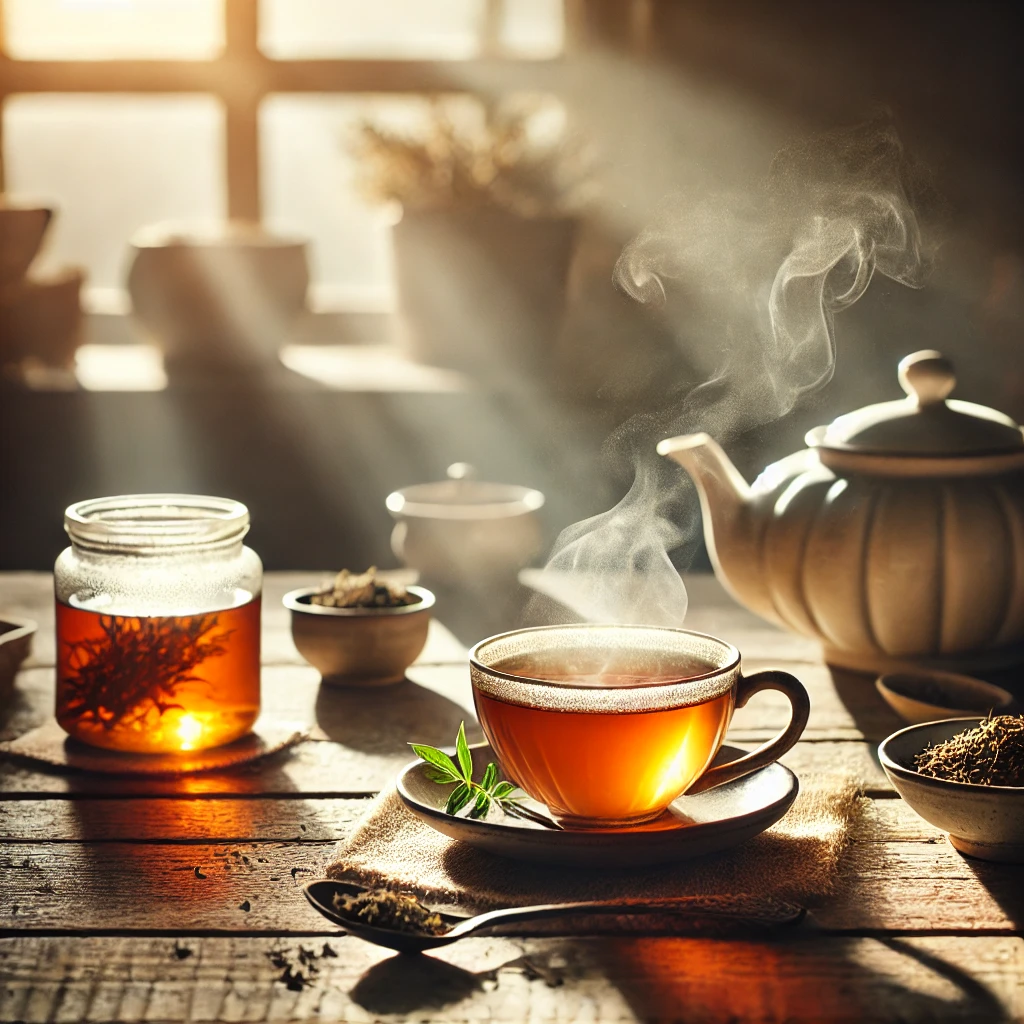
Quality Matters: Choosing the Right Herbal Tea
Not all teas are created equal! When selecting the best herbal teas for health and wellness, it’s essential to consider quality to ensure maximum flavor, potency, and benefits. Choosing premium herbal teas can enhance your tea-drinking experience and provide better immune support, digestive aid, and relaxation benefits.
Why Quality Matters
High-quality herbal teas are free from contaminants and retain more of their natural antioxidants and essential oils, making them more effective in promoting immune health, digestion, and stress relief. Low-quality teas, particularly mass-produced tea bags, often contain dust and broken leaves, resulting in weaker flavors and fewer health benefits.
What to Look for When Purchasing Herbal Teas
- Organic Options: Choose organic herbal teas to avoid pesticides and harmful chemicals, ensuring a purer and healthier brew.
- Loose-Leaf Teas: Opt for loose-leaf teas rather than tea bags, as they contain higher-quality, whole leaves that provide better flavor, aroma, and nutrient retention.
- Reputable Brands: Purchase from trusted tea brands that source their ingredients responsibly and prioritize sustainability and fair trade practices.
- Freshness Check: Always check the packaging date and expiration to ensure freshness and optimal health benefits.
- Purity & Ingredients: Avoid herbal teas with artificial flavors, colors, or additives—opt for pure, natural blends with transparent ingredient sourcing.
Enjoying the Best Tea Experience
By selecting high-quality herbal teas, you can enjoy a superior tea-drinking experience while reaping the full spectrum of wellness benefits that nature has to offer. Whether you’re drinking chamomile for relaxation, peppermint for digestion, or hibiscus for heart health, choosing the right herbal tea ensures you get maximum benefits in every sip.
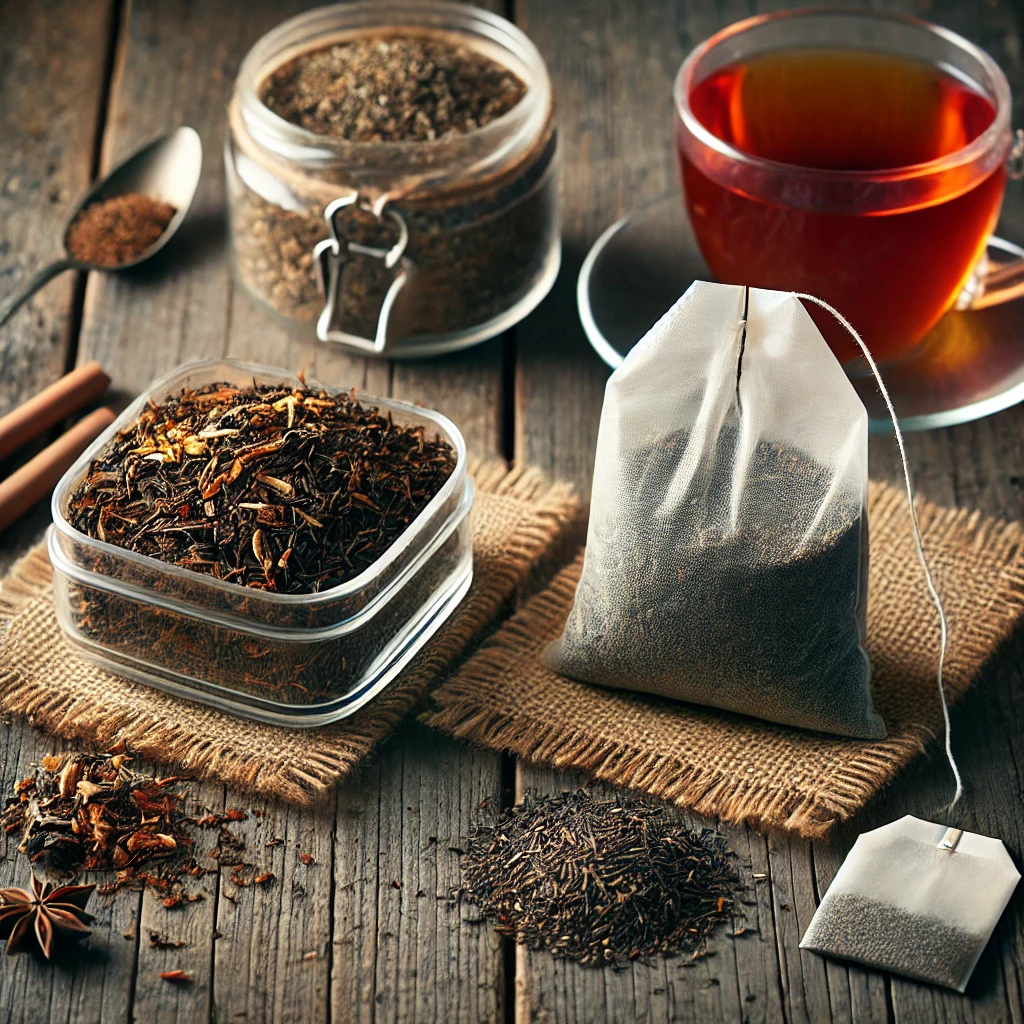
Embracing the Herbal Tea Journey
Ready to embark on your herbal tea adventure? Exploring different varieties and methods of preparation can be both an enjoyable and rewarding experience. Whether you’re looking to create a personalized tea ritual or expand your knowledge of global herbal tea traditions, there are many exciting ways to deepen your connection with this ancient wellness beverage.
Fun Ways to Explore the World of Herbal Tea
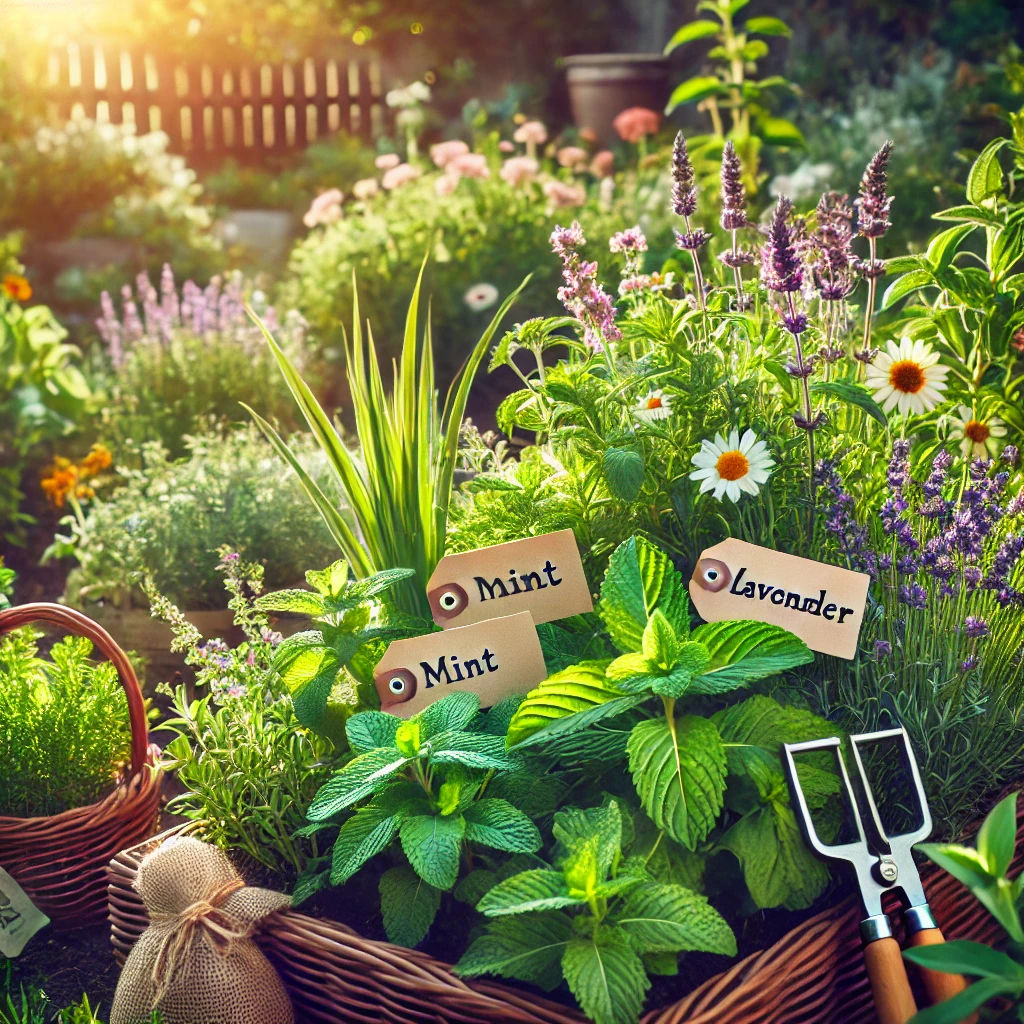
- Experiment with Blends: Mix different herbs to create your own signature tea blends that cater to your unique taste and wellness goals.
- Grow Your Own Herbs: Fresh, homegrown ingredients make the best teas! Try cultivating mint, chamomile, lemon balm, or lavender to enjoy freshly harvested herbal infusions.
- Learn the Traditions: Herbal tea has a rich history across various cultures. Explore how different countries incorporate herbal teas for relaxation, healing, and daily rituals—from Chinese medicinal teas to Ayurvedic herbal infusions.
- Host a Tea Tasting: Invite friends and family to a herbal tea tasting experience, where you can compare flavors, discuss benefits, and enjoy the soothing effects of different brews.
- Incorporate Herbal Teas into Recipes: Herbal teas aren’t just for drinking! Use them in cooking, baking, or even crafting herbal-infused syrups for cocktails and desserts.
💡 Pro Tip: By immersing yourself in the world of herbal teas, you not only discover delicious flavors but also unlock the numerous health and wellness benefits that these natural elixirs offer.
Final Sip
Herbal teas are a delightful and natural way to support your wellness journey. Whether you need a moment of relaxation, a digestive aid, or an immune boost, there’s an herbal tea to meet your needs. These natural infusions provide a flavorful and therapeutic alternative to traditional beverages, helping to promote mental clarity, digestion, and overall vitality.
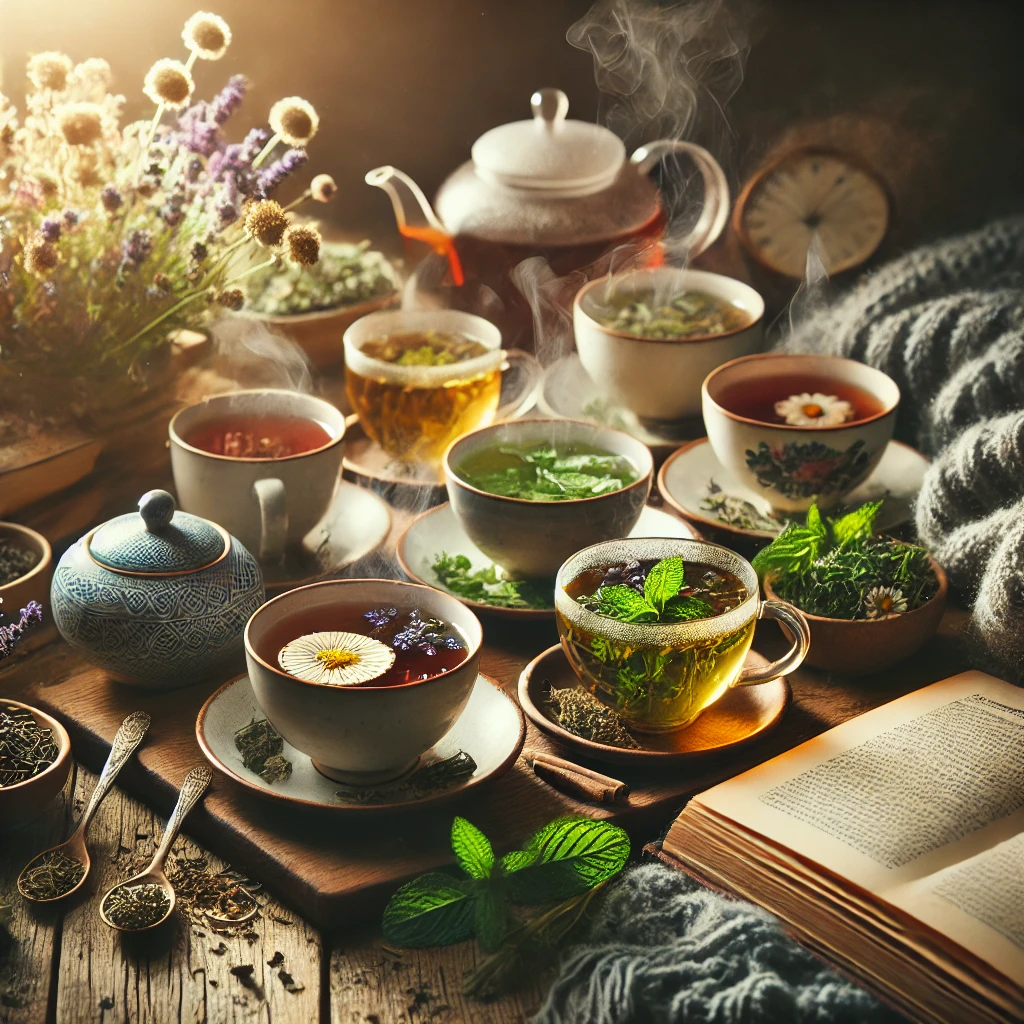
So why not put the kettle on and explore the wonderful world of herbal teas? Discover new flavors, experiment with blends, and embrace the calming ritual of tea drinking. Your body and mind will thank you for incorporating this ancient tradition into your modern lifestyle.
👉 Check out our recommended 🛒 heavenly tea leaves and start your wellness journey today!)
Discover your drinking habits and try out this soothing ginger-lemon herbal tea elixir
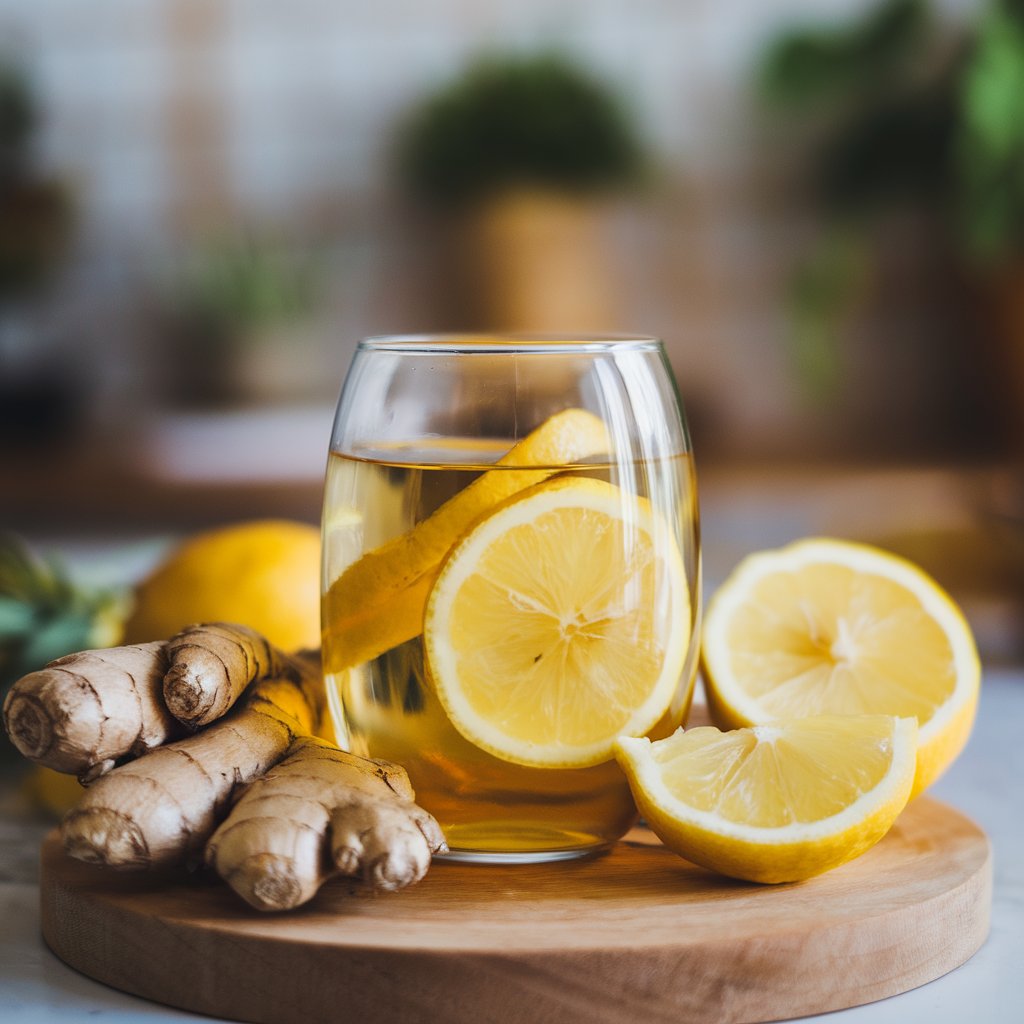
📌 Related Read: Herbal Teas: 15 Surprising Health Benefits
Join the Conversation!
Drop your thoughts in the comments below and let’s chat about all things beverage!
Frequently Asked Questions (FAQ)
Herbal teas offer numerous health benefits, including stress relief, improved digestion, enhanced immunity, and better sleep. Some teas, like chamomile and lavender, promote relaxation, while others, like ginger and peppermint, aid digestion. Antioxidant-rich teas, such as hibiscus and rooibos, support heart health and overall wellness.
Yes, most herbal teas are naturally caffeine-free, making them a great alternative to traditional black and green teas. Herbal blends like chamomile, peppermint, rooibos, and hibiscus provide a soothing experience without the stimulating effects of caffeine.
Certain herbal teas, such as hibiscus, green rooibos, and ginger tea, are known to boost metabolism, aid digestion, and support fat loss. Drinking herbal tea regularly, along with a balanced diet and exercise, can contribute to healthy weight management.
The best herbal teas for sleep include chamomile, lavender, valerian root, and lemon balm. These teas have natural calming properties that help reduce anxiety, promote relaxation, and improve sleep quality.
Herbal teas like peppermint, ginger, fennel, and licorice root help soothe the stomach, reduce bloating, and promote gut health. Drinking these teas after meals can enhance digestion and relieve discomfort.
Yes! Echinacea, ginger, hibiscus, and elderberry teas are packed with antioxidants and vitamin C, which help strengthen the immune system and reduce the severity of colds and flu.
For the best results, use loose-leaf herbal tea and steep it in hot (but not boiling) water for 5–10 minutes. Cover the cup while steeping to preserve the essential oils and nutrients in the herbs.
Yes, herbal tea is safe for daily consumption. However, it’s best to rotate different herbal teas to enjoy a variety of health benefits and avoid over-consumption of certain herbs.
Unlike traditional black, green, or white teas (which come from the Camellia sinensis plant), herbal teas are made from dried herbs, flowers, fruits, and spices. They are typically caffeine-free and offer unique wellness benefits.
Some herbal teas, like ginger and peppermint, are generally considered safe during pregnancy. However, certain herbs, such as licorice root, raspberry leaf, and chamomile, should be consumed with caution. Always consult a healthcare provider before drinking herbal tea during pregnancy.
Absolutely! You can create homemade herbal tea blends by mixing dried herbs like chamomile, mint, hibiscus, and lemon balm. Experiment with different combinations to create a tea blend that suits your taste and wellness goals.
Hibiscus tea is known for its blood pressure-lowering properties, while rooibos and hawthorn berry tea support cardiovascular function by reducing cholesterol and improving circulation.
Yes! Herbal teas can be used in smoothies, desserts, marinades, and cocktails. Try using chai tea in baked goods or hibiscus tea for flavorful iced drinks and syrups.
Turmeric, ginger, rooibos, and green rooibos teas are rich in anti-inflammatory compounds, which help reduce pain, swelling, and oxidative stress in the body.
To maintain freshness and potency, store herbal teas in airtight containers, away from light, heat, and moisture. Keep them in a cool, dark place for maximum shelf life.



